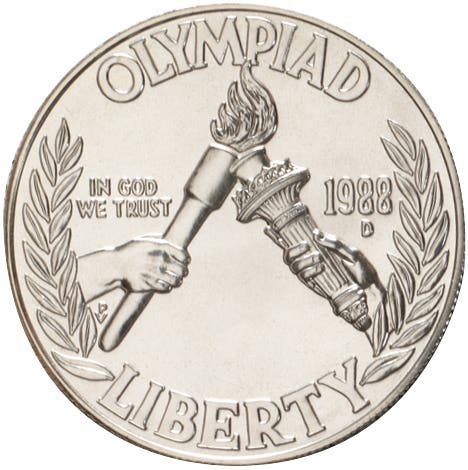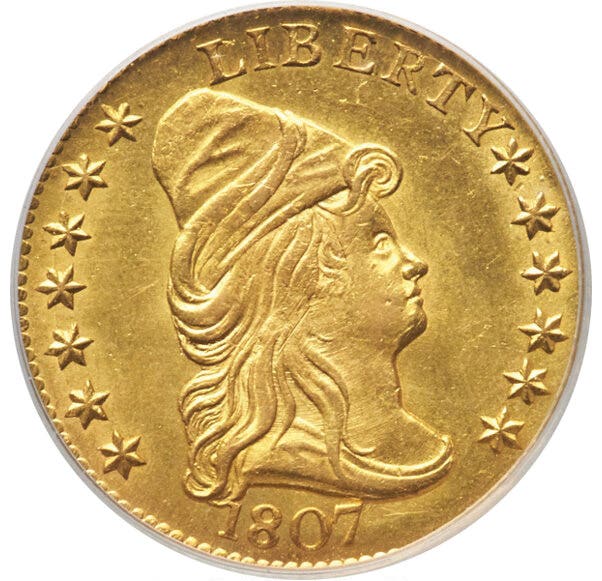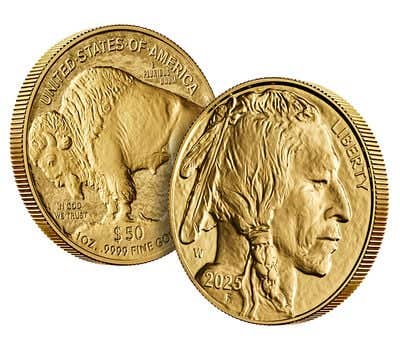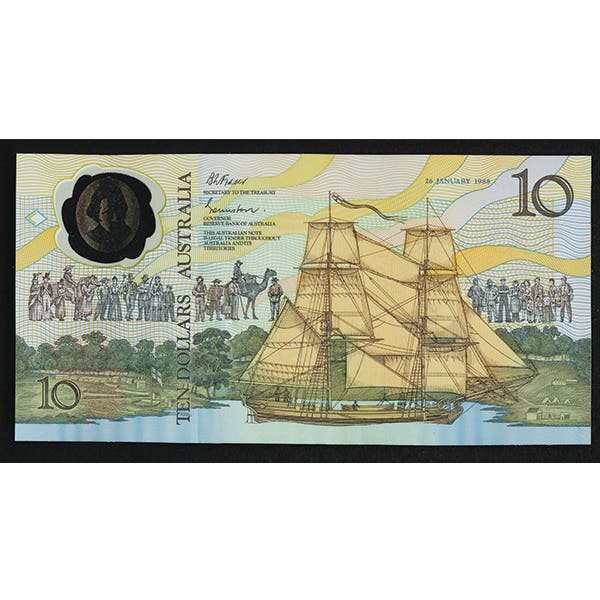A Temporary Numismatic Bargain-Buying Opportunity
The handful of U.S. states that impose a property tax on inventory gives businesses in their jurisdictions the incentive to minimize their stock as of Dec. 31.
It happens every year. The handful of U.S. states that impose a property tax on inventory gives businesses in those jurisdictions the incentive to minimize their stock as of Dec. 31. Among such businesses are coin and precious metals dealers.
Michigan used to impose a property tax on inventory through 1976 but has not since. While the tax still applied, the owners of the company that I later owned would pack their valuable inventory in briefcases to attend an out-of-state New Year’s Eve party to minimize that tax liability.
According to the best information I have today, the states of Arkansas, Kentucky, Louisiana, Mississippi, Oklahoma, Virginia, and West Virginia charge statewide property taxes on inventory. In Alaska, Maryland, Texas, and Vermont, property taxes are handled at the local level, where some jurisdictions assess property taxes on inventory.
To the extent practical, businesses in jurisdictions where inventory property taxes are assessed try to avoid acquiring inventory shortly before the end of the year and may reduce their buy prices if pressed to do so. Some dealers may commit to purchasing from a wholesaler or other dealer near year-end but ask that it not be shipped until after Dec. 31.
There are some dealers that are subject to an inventory property tax who are willing to discount their merchandise in the final days of December in order to get it out of their inventory by the end of the month. Working at a dealership in a state that does not have such a tax, we have frequently been able to acquire slightly better deals in late December, taking inventory off the hands of dealers in inventory-taxable states.
That doesn’t mean that every coin dealer in a location where there is an inventory property tax would be ready to wheel and deal to move product out the door by Dec. 31. Even if they do become aggressive sellers, they might only offer such discounts to well-established customers. But, if you seek an opportunity to perhaps get a slightly lower price from a dealer in a state or local jurisdiction where inventory property taxes apply, it never hurts to ask.
Answer to the Previous Trivia Question
Last week, I asked: What was the name of the British family that included multiple coin designers, including some from whom George T. Morgan learned his craft before coming to the United States to leave his mark on American numismatics?
Morgan was employed by the British Royal Mint as an assistant coin engraver under brothers Joseph Shepherd Wyon and Alfred Benjamin Wyon. Multiple generations of the Wyon family worked for the Royal Mint as coin engravers from the mid-18th century to the late 19th century, usually passing the position of chief engraver from father to son. This tradition left Morgan only limited prospects of advancement at the Royal Mint.
In 1876, U.S. Mint Director H.R. Linderman sent a letter to Royal Mint Director Charles Freemantle, lamenting the work of Chief Engraver William Barber and his son Assistant Engraver Charles Barber. In the letter, Linderman asked Freemantle if he could recommend a first-class diesinker for the position of assistant engraver at the Philadelphia Mint. Freemantle wrote a glowing recommendation of Morgan, explaining his limited options at the Royal Mint, and included an application letter by Morgan with his reply. Morgan was offered the job, arriving at the U.S. Mint on Oct. 9, 1876. The rest is history.
This Week’s Trivia Question
In the U.S. Presidential dollar series, four presidents show a name on the coin that was not their name at birth. Who were they, and what were their birth names? Come back next week for the answer.
Patrick A. Heller was honored as a 2019 FUN Numismatic Ambassador. He is also the recipient of the American Numismatic Association 2018 Glenn Smedley Memorial Service Award, 2017 Exemplary Service Award, 2012 Harry Forman National Dealer of the Year Award, and 2008 Presidential Award. Over the years, he has also been honored by the Numismatic Literary Guild (including twice in 2020), the Professional Numismatists Guild, the Industry Council for Tangible Assets, and the Michigan State Numismatic Society. He is the communications officer of Liberty Coin Service in Lansing, Mich., and writes Liberty’s Outlook, a monthly newsletter on rare coins and precious metals subjects. Past newsletter issues can be viewed at www.libertycoinservice.com. Some of his radio commentaries titled “Things You ‘Know’ That Just Aren’t So, And Important News You Need To Know” can be heard at 8:45 a.m. Wednesday and Friday mornings on 1320-AM WILS in Lansing (which streams live and becomes part of the audio archives posted at www.1320wils.com).









